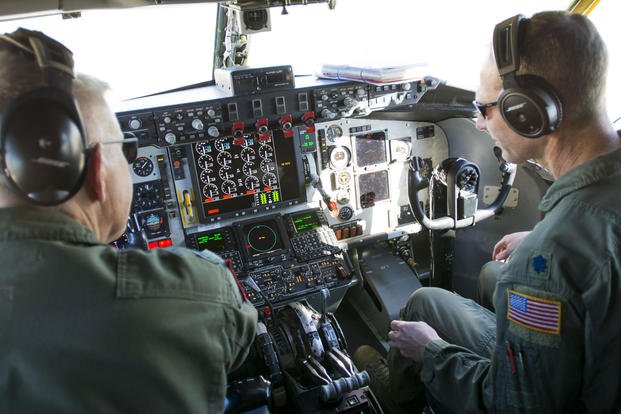The Air Force's top general has ordered all commanders to review procedures and training for their aircraft across the service in the wake of the recent Boeing Co. 737 MAX-8 crashes.
Air Force Chief of Staff Gen David Goldfein has "directed Air Force leaders to ensure we have adequate training in our aircraft emergency procedures and simulator training," Air Force spokeswoman Ann Stefanek told Military.com Wednesday. The news was first reported by CNN.
Goldfein also "tasked the Air Force Safety Center to analyze previous Air Force mishaps involving autopilot anomalies," Stefanek said.
The review is precautionary, to make sure the service does "due diligence to make sure training and procedures are in place," Stefanek told Military.com.
Most Air Force aircraft have some version of autopilot, with varying levels of complexity, Stefanek said. The review will most benefit airmen who rely on these autopilot systems.
The Air Force said the assessment is not limited to certain fleets. Meanwhile, CNN on Wednesday reported the review initially targets the C-17 Globemaster III and KC-46 Pegasus tanker fleets, as well as the VC-25A, better known as Air Force One, which is based on the older Boeing 747 airliner. All three aircraft are made by Boeing.
"At this time, the Air Force has had no indication of problems with Air Force aircraft similar to what has been reported with the Max," Stefanek said.
Stefanek said there is no timeline for the review to be complete, but rather that commanders ensure the procedures are in place in "an abundance of caution."
Goldfein has also offered the Federal Aviation Administration full support and assistance with the use of its safety resources.
Last week, President Donald Trump announced that the U.S. will ground all Boeing 737 MAX-8 jets, effective immediately, after two crashes involving foreign airlines in less than six months killed nearly 350 people. Officials, who are relying on preliminary data recovered from the black boxes in the Ethiopia crash on March 10, say there are similarities to the Air Lion crash in Indonesia in October. Both instances point to a flaw in the aircraft's automated system that prevents stalls.
The automation systems in Air Force aircraft differ from that in the 737 commercial plane, but additional learning can never hurt, according to an instructor pilot.
"When it comes to military aviation, we try to learn from any available source, especially the civilian sector," said an Air Force instructor pilot who flies a mobility aircraft and agreed to speak to Military.com on background. "I think it is a good decision by [Goldfein] to take a look our training and standard for aircraft automation."
The pilot added that block upgrades typically bring with them changes and updated procedures.
"Our safety classes often include discussions on civilian mishaps and lessons that can be learned from them just as much as we draw on military aviation mishaps," the pilot said. "So when we see one and probably two mishaps that involve a lack of training or understanding of the automation systems contributing to fatal crashes, it never hurts to take a second to look at our training."
-- Oriana Pawlyk can be reached at oriana.pawlyk@military.com. Follow her on Twitter at @oriana0214.











